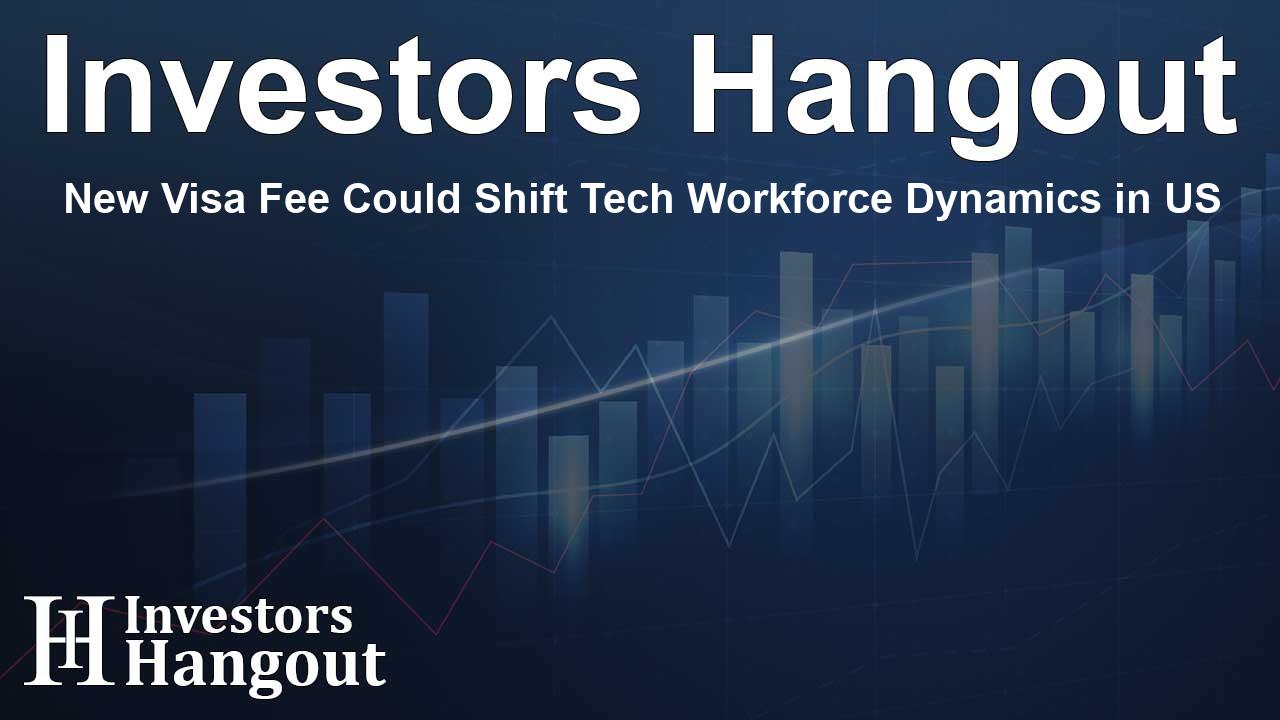New Visa Fee Could Shift Tech Workforce Dynamics in US

Impending Changes to H-1B Visa Fees
Recently, the administration detailed plans to impose a staggering $100,000 annual fee for each H-1B visa. This significant hike could have profound implications for technology hiring practices and, more broadly, the competitive edge of the U.S. in the global landscape of artificial intelligence innovation.
Current H-1B Program Overview
The H-1B program currently allows the issuance of 65,000 visas each year, supplemented by 20,000 additional visas for individuals with advanced degrees. The standard application fees are relatively modest compared to the proposed fee. This program plays a crucial role in enabling U.S. companies to hire skilled foreign professionals in specialized fields.
Shift Toward Domestic Employment
U.S. Commerce Secretary Howard Lutnick emphasized that these changes aim to encourage firms to focus on recruiting and training domestic workers. He stated the administration’s stance of preferring homegrown talent, advocating that resources should be directed toward graduates from American universities.
Costs Burden on Tech Companies
This new fee structure could impose millions in added costs on technology firms, particularly straining smaller companies that may rely heavily on H-1B talent. Large corporations like Amazon.com Inc. (NASDAQ: AMZN) and Microsoft Corp. (NASDAQ: MSFT) have amassed considerable approvals for H-1B visas in recent years, allowing them to maintain competitive workforces.
Effects on Talent Sourcing
The shift in visa costs could disrupt talent pipelines from key countries such as India and China, which currently provide a significant percentage of H-1B visa holders. According to recent statistics, India represents approximately 71% of H-1B beneficiaries, while China contributes around 11.7%.
Industry Analysts' Perspectives
Many analysts warn that the proposed fee increase could unintentionally drive high-value work overseas. Jeremy Goldman of eMarketer expressed concern that while short-term revenue might increase, the U.S. risks losing its innovative capacity through protective measures that could stifle flexibility and adaptability in the tech sector.
Concerns over Wages and Employment
Critics of the H-1B program have pointed out that it has been exploited by some employers to suppress wages, arguing for tighter regulations. However, proponents, including notable figures like Elon Musk of Tesla Inc. (NASDAQ: TSLA), argue that the program is essential for maintaining a workforce that possesses critical skills that domestic talent often lacks.
Political and Legal Reactions
The announcement of the proposed fee aligns with a broader narrative involving immigration reform, illustrated by the introduction of a new "gold card" program that allows individuals to gain U.S. permanent residency through a $1 million investment. This initiative comes at a time when legal scrutiny is also intensifying, with companies facing accusations of preferential treatment towards foreign visa holders over American workers.
The Future of H-1B Visas in the U.S.
The ramifications of these proposed changes will likely reverberate through the tech industry and beyond. The narrative surrounding the H-1B program is pivotal, as it not only impacts who can enter and contribute to the U.S. economy but also shapes the future workforce landscape.
Frequently Asked Questions
What is the new annual fee for H-1B visas?
The proposed fee is set at $100,000 per H-1B visa, which is a substantial increase compared to the current fees.
Why is the H-1B program important for tech companies?
The H-1B program helps tech companies access skilled foreign workers in specialized fields, filling gaps in the domestic talent pool.
How might the new fees affect small businesses?
Small businesses could bear a heavier financial burden due to the new fees, potentially limiting their ability to compete for talent.
What has been the response from industry analysts?
Analysts warn that the increase in fees could lead to offshoring of high-value work, compromising the U.S.'s innovation edge.
What measures are being taken alongside the fee increase?
Along with the fee increase, a new "gold card" program is being introduced, which permits investors to gain permanent residency by investing $1 million.
About The Author
Contact Evelyn Baker privately here. Or send an email with ATTN: Evelyn Baker as the subject to contact@investorshangout.com.
About Investors Hangout
Investors Hangout is a leading online stock forum for financial discussion and learning, offering a wide range of free tools and resources. It draws in traders of all levels, who exchange market knowledge, investigate trading tactics, and keep an eye on industry developments in real time. Featuring financial articles, stock message boards, quotes, charts, company profiles, and live news updates. Through cooperative learning and a wealth of informational resources, it helps users from novices creating their first portfolios to experts honing their techniques. Join Investors Hangout today: https://investorshangout.com/
The content of this article is based on factual, publicly available information and does not represent legal, financial, or investment advice. Investors Hangout does not offer financial advice, and the author is not a licensed financial advisor. Consult a qualified advisor before making any financial or investment decisions based on this article. This article should not be considered advice to purchase, sell, or hold any securities or other investments. If any of the material provided here is inaccurate, please contact us for corrections.
